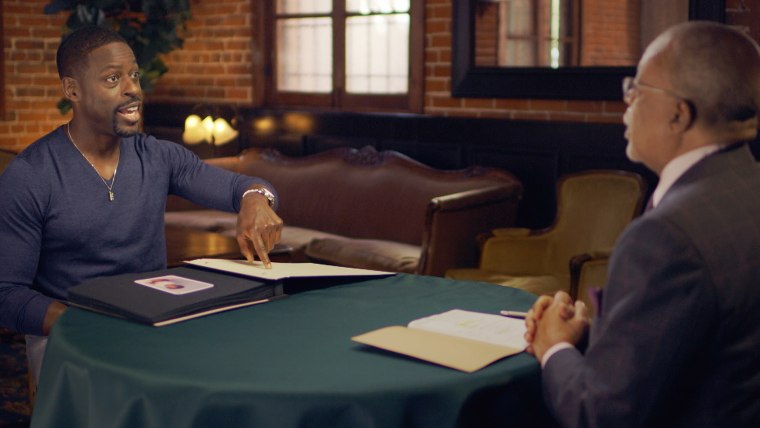Emmy-winning actor Sterling K. Brown made an emotional discovery when he appeared last week on PBS’ celebrity genealogy program “Finding Your Roots.” A star of NBC’s “This Is Us,” Brown was moved to tears when he was shown that his ancestors had been in the U.S. since before the Civil War, and that his paternal fifth great-grandparents were born in Africa.
“You know what that means,” host Henry Louis Gates Jr. said.
“It just hit me,” Brown replied. “They were slaves.”
Brown, who also starred in FX’s “The People v. O.J. Simpson: American Crime Story” and co-starred in the 2018 “Black Panther” movie, had struggled to research his family roots on his father’s side after his father died of heart failure, when Brown was 10. He said that most of his family tree on his dad’s side was “a mystery” -- until Gates found Brown’s paternal third great grandparents in the 1900 U.S. census.
“You know in theory that you have to come from somewhere. But now you know you have real people with real names and real birthplaces,” Brown said. “It’s surreal to actually see it.”
Gates pointed that it’s often difficult for African Americans to trace their lineage, since slavery broke family bonds and made genealogical record-keeping almost impossible. Often, the only way to try to trace the lineage of a descendant of slaves is by using the records of slave dealers and owners, created not to document the lives of the ancestors of slaves but as legal or business documents listing those ancestors as assets. Gates found Brown’s ancestors in a document filed by the plantation owner who enslaved them, where they were listed as collateral for his mortgage.
“It’s only through documents like this that we can begin to approximate the identity of a black person’s ancestors who were enslaved,” Gates told Brown.
“Being black in this country… you get so used to not knowing for so long,” Brown said. “It’s a joy to know that it’s real. I’m real, is what it feels like.”
